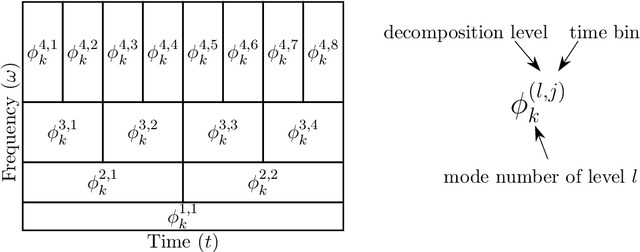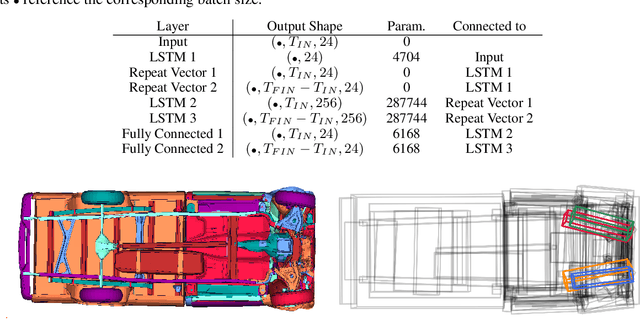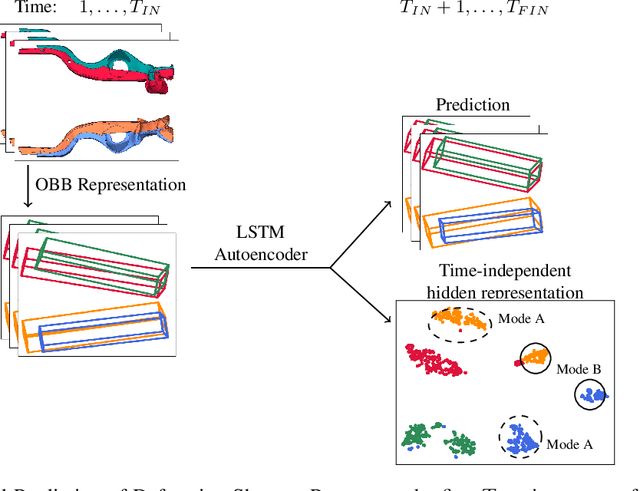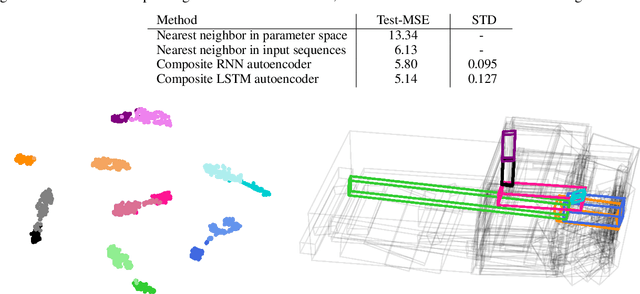Rodrigo Iza-Teran
Multi-resolution Dynamic Mode Decomposition for Early Damage Detection in Wind Turbine Gearboxes
Oct 08, 2021



Abstract:We introduce an approach for damage detection in gearboxes based on the analysis of sensor data with the multi-resolution dynamic mode decomposition (mrDMD). The application focus is the condition monitoring of wind turbine gearboxes under varying load conditions, in particular irregular and stochastic wind fluctuations. We analyze data stemming from a simulated vibration response of a simple nonlinear gearbox model in a healthy and damaged scenario and under different wind conditions. With mrDMD applied on time-delay snapshots of the sensor data, we can extract components in these vibration signals that highlight features related to damage and enable its identification. A comparison with Fourier analysis and Empirical Mode Decomposition shows the advantages of the proposed mrDMD-based data analysis approach for early damage detection.
Analysis and Prediction of Deforming 3D Shapes using Oriented Bounding Boxes and LSTM Autoencoders
Aug 31, 2020



Abstract:For sequences of complex 3D shapes in time we present a general approach to detect patterns for their analysis and to predict the deformation by making use of structural components of the complex shape. We incorporate long short-term memory (LSTM) layers into an autoencoder to create low dimensional representations that allow the detection of patterns in the data and additionally detect the temporal dynamics in the deformation behavior. This is achieved with two decoders, one for reconstruction and one for prediction of future time steps of the sequence. In a preprocessing step the components of the studied object are converted to oriented bounding boxes which capture the impact of plastic deformation and allow reducing the dimensionality of the data describing the structure. The architecture is tested on the results of 196 car crash simulations of a model with 133 different components, where material properties are varied. In the latent representation we can detect patterns in the plastic deformation for the different components. The predicted bounding boxes give an estimate of the final simulation result and their quality is improved in comparison to different baselines.
A Compact Spectral Descriptor for Shape Deformations
Mar 10, 2020



Abstract:Modern product design in the engineering domain is increasingly driven by computational analysis including finite-element based simulation, computational optimization, and modern data analysis techniques such as machine learning. To apply these methods, suitable data representations for components under development as well as for related design criteria have to be found. While a component's geometry is typically represented by a polygon surface mesh, it is often not clear how to parametrize critical design properties in order to enable efficient computational analysis. In the present work, we propose a novel methodology to obtain a parameterization of a component's plastic deformation behavior under stress, which is an important design criterion in many application domains, for example, when optimizing the crash behavior in the automotive context. Existing parameterizations limit computational analysis to relatively simple deformations and typically require extensive input by an expert, making the design process time intensive and costly. Hence, we propose a way to derive a compact descriptor of deformation behavior that is based on spectral mesh processing and enables a low-dimensional representation of also complex deformations.We demonstrate the descriptor's ability to represent relevant deformation behavior by applying it in a nearest-neighbor search to identify similar simulation results in a filtering task. The proposed descriptor provides a novel approach to the parametrization of geometric deformation behavior and enables the use of state-of-the-art data analysis techniques such as machine learning to engineering tasks concerned with plastic deformation behavior.
 Add to Chrome
Add to Chrome Add to Firefox
Add to Firefox Add to Edge
Add to Edge